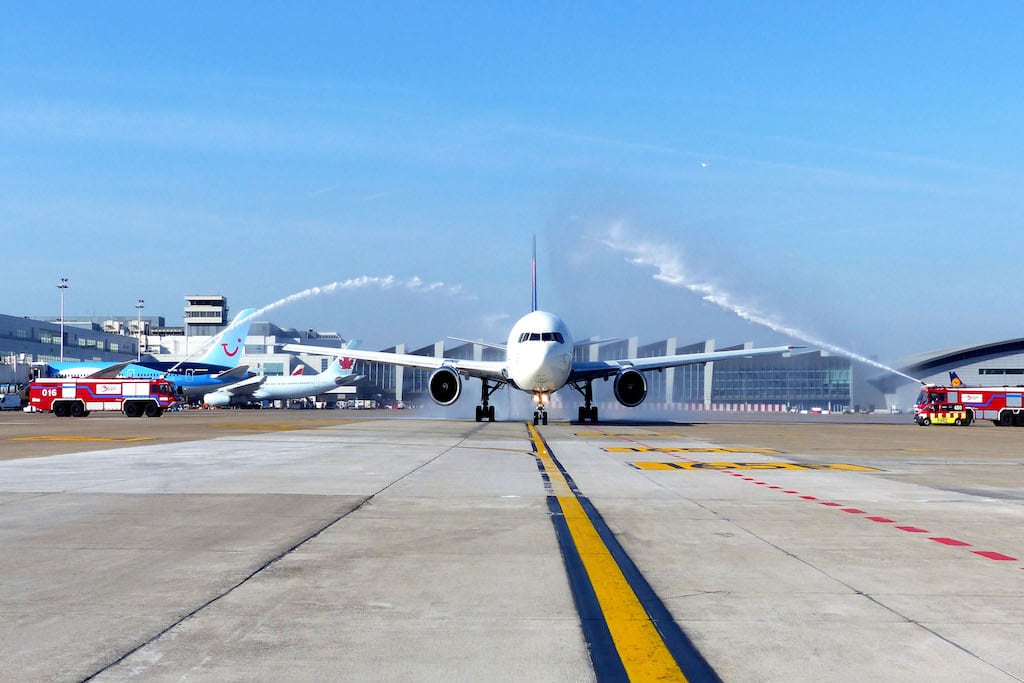An Industry in Search of Innovation

Skift Take
This week I went to the Association of Corporate Travel Executives' Global Summit in New York and talked to a bunch of people.
Attendance seemed to be way up this year, but the themes discussed and structure remained the same as in recent years. For corporate travel to evolve, the conversation around trends and technological change needs to shift too.
We've also got an in-depth look into how Sabre's recent strategy shift is paying off for the recovering distribution player, and information on Lyft's surge in business travel popularity (at least on one expense platform).
If you have any feedback about the newsletter or tips, feel free to reach out via email at as@skift.com or tweet me @sheivach.
— Andrew Sheivachman, Business Travel Editor
Airlines, Tech, and Innovation
Corporate Travel’s Fear of Failure Dims Innovation: It blows my mind that corporate travel executives say the same exact thing at this conference every year. It’s like Groundhog Day with more suits and fewer laughs. Everyone wants to be one step ahead, but where is the incentive to actually take that step?
Sabre’s Back to the Basics Strategy Shift Starts to Bear Fruit: CEO Sean Menke has gained breathing room to provide positive surprises. Getting cloud-based distribution and operations software right is hard. So the company is relying on concepts from top-tier management consulting firms as guidance.
Lyft Continues to Gain Ground in Business Travel Ground Transportation: Beyond the Uber and Lyft drama here, the deeper trend seems to be companies and travel managers allowing business travelers to make their own choices about which ground transportation option they prefer. This represents a major change from how things used to be, and it is good news for the industry.
Local Expertise Makes the Difference in Asia Meetings Market: With Asia becoming a more popular meetings destination for Western organizations, events professionals need to understand local capabilities and cultural nuances. Often, local assistance on the ground can be the difference between success and failure.
Hotel Chains Remain Bullish on Corporate Travel Growth: Business travel continues to drive serious demand for U.S. hotels despite fears that reduced international inbound travel would create problems. Companies worldwide are still spending on travel because they feel good about the state of the global economy.
The Future of Travel
Airbnb Won’t Launch Flights Anytime Soon: Can Airbnb become a superbrand of travel, as it has stated as a goal? Probably not without launching flights. On the other hand, Booking.com has done fairly well for itself without offering flights until now.
Etihad Plans to Stay a Major Global Carrier Despite Financial Woes: It’s safe to say that turbulent times remain for the troubled airline. If Etihad still wants to be a major player, the carrier needs to figure out how to do that and still make money.
U.S. Requiring More Aircraft Engine Inspections After Southwest Failure: It’s probably a good idea to broaden inspections. This will make things more arduous on airlines as the busy summer travel season approaches, but safe is better than sorry.
Google Plans to String Its Travel Assets Together: We come in peace, a top Google executive essentially said while addressing the travel industry on Thursday at Skift Forum Europe in Berlin. One possible industry response might be: “Trust, but verify.”
SUBSCRIBE
Skift Business Travel Editor Andrew Sheivachman [as@skift.com] curates the Skift Corporate Travel Innovation Report. Skift emails the newsletter every Thursday.
Subscribe to Skift's Free Corporate Travel Innovation Report





